(Instructions for the Visit)
Admire, when you come here, the glimmering hair
Of the girl; praise her pale
Complexion. Think well of her dress
Though that is somewhat out of fashion.
Don’t try to take her hand, but smile for
Her hesitant gentleness.
Say the old woman is looking strong
today; such hardiness. Remark,
Perhaps, how she has dressed herself black
Like a priest, and wears that sufficient air
That does become the righteous.
As you approach, she will push back
Her chair, shove away her plate
And wait,
Sitting squat and direct, before
The red mahogany chest
Massive as some great
Safe; will wait,
By the table and her greasy plate,
The bone half-chewed, her wine half-drained;
She will wait. And fix her steady
Eyes on you—the straight stare
Of an old politician.
Try once to meet her eyes. But fail.
Let your sight
Drift—yet never as if hunting for
The keys (you keep imagining) hung
By her belt. (They are not there.)
Watch, perhaps, that massive chest—the way
It tries to lean
Forward, toward her, till it seems to rest
Its whole household’s weight
Of linens and clothing and provisions
All on her stiff back.
It might be strapped there like the monstrous pack
Of some enchanted pedlar. Dense, self-contained,
Like mercury in a ball,
She can support this without strain,
Yet she grows smaller, wrinkling
Like a potato, parched as dung;
It cramps her like a fist.
Ask no one why the chest
Has no knobs. Betray
No least suspicion
The necessities within
Could vanish at her
Will. Try not to think
That as she feeds, gains
Specific gravity,
She shrinks, light-
less as the world’s
Hard core
And the per-
spective drains
In her.
Finally, above all,
You must not ever see,
Or let slip one hint you can see,
On the other side, the girl’s
Cuffs, like cordovan restraints;
Forget her bony, tentative wrist,
The half-fed, worrying eyes, and how
She backs out, bows, and tries to bow
Out of the scene, grows too ethereal
To make a shape inside her dress
And the dress itself is beginning already
To sublime itself away like a vapor
That merges into the empty twinkling
Of the air and of the bright wallpaper.

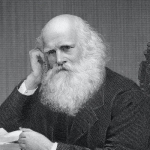






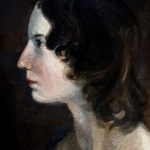






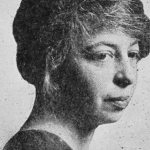
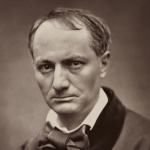

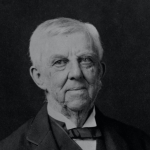

Comment form: